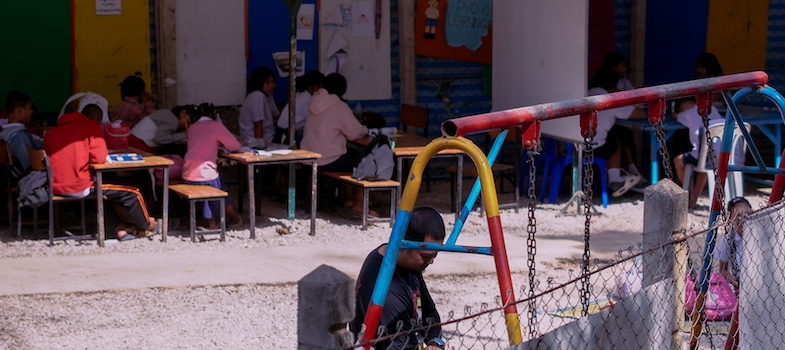Educational Psychologist
The role of a teacher in providing counselling support is a complex issue with varying perspectives. While teachers often serve as a primary point of contact and support for students, formal counselling is generally considered a specialist role due to the specific training, ethical considerations, and depth of intervention required.
Teacher's Role vs. Specialist Role Teachers inherently provide a level of emotional and social support to their students. They are often the first to notice changes in a student's behavior or well-being and can offer guidance, encouragement, and a safe space for students to express themselves. This informal support is crucial for fostering a positive learning environment and can address everyday challenges students face, such as homework struggles, peer conflicts, or minor emotional upsets. However, formal counselling involves specialized skills and knowledge that typically fall outside the scope of a teacher's training. School counselors, for instance, undergo extensive education in psychology, child development, crisis intervention, and various therapeutic techniques. Their responsibilities include helping students set learning goals, discussing educational progress with parents, training students on interpersonal skills, and referring students to in-school or outside professionals for more intensive support. The depth of issues that school counselors address can range from mental health disorders like anxiety and depression to severe behavioral problems and trauma.
In Morocco, for example, studies highlight the importance of socioemotional resources and mental health in adolescents. Research indicates that socioemotional resources, including emotional intelligence and social support, are significantly linked to mental health outcomes like depression and health-related quality of life. While teachers can contribute to a supportive environment, addressing these deeper issues often requires the expertise of trained professionals. Similarly, in the context of substance use among Moroccan adolescents, while teachers are seen as important for raising awareness, the lack of specialists like psychiatrists or social assistants in schools is noted as a significant gap. Therefore, while teachers play a vital role in the initial identification of student needs and providing general support, formal counselling, especially for complex psychological or behavioral issues, is best handled by trained specialists.
Risks Involved in Offering Counselling Support to Learners There are several risks associated with teachers providing formal counselling support without adequate training:
Lack of Expertise and Misdiagnosis: Teachers, without specialized training, may misinterpret symptoms or offer inappropriate advice, potentially exacerbating a student's problems or delaying access to necessary professional help. For instance, mistaking symptoms of clinical depression for typical adolescent moodiness could have serious consequences. Ethical Boundaries and Confidentiality: Maintaining confidentiality is paramount in counselling. Teachers may struggle with the ethical dilemmas of balancing student disclosures with reporting obligations, especially concerning sensitive issues like abuse or self-harm. Breaching confidentiality, even inadvertently, can erode trust and harm the student-teacher relationship. Emotional Burnout for Teachers: Taking on the emotional burden of students' complex problems without proper training or support can lead to significant stress and burnout for teachers. This is particularly relevant in contexts where teachers already face considerable workload and challenges, as seen in studies on teacher burnout in Morocco. Legal and Liability Issues: In some jurisdictions, providing counselling services without appropriate qualifications can expose teachers and schools to legal liabilities if harm occurs due to untrained intervention. Overstepping Professional Roles: Teachers are primarily educators. When they assume the role of a counselor, it can blur professional boundaries and potentially interfere with their primary teaching responsibilities and the student's perception of their role. Cultural Sensitivity: In diverse cultural contexts like Morocco, understanding the nuances of how mental health issues are perceived and discussed is crucial. Untrained teachers might inadvertently offer advice that is culturally insensitive or inappropriate.
School/Learning Centre Support and Training Needs Me, I believe that my school/learning center would greatly benefit from enhanced support and training to provide effective counselling services to learners. Currently, while teachers offer informal support, a structured counselling program is largely absent. To effectively provide counselling support, my school would need:
Specialized Training for School Counselors: This would involve hiring or training dedicated school counselors with master's degrees in school counseling or a related field, equipping them with skills in crisis intervention, mental health assessment, and various therapeutic approaches. Professional Development for Teachers: Teachers could receive training on identifying signs of distress, basic active listening skills, and appropriate referral pathways. This would empower them to act as effective first-line supporters and refer students to specialists when needed, without overstepping their professional boundaries. Integration of Mental Health into Curriculum: Incorporating health education programs that address socioemotional well-being, coping mechanisms, and awareness of mental health issues could be beneficial. This aligns with findings suggesting that health education can promote awareness and reduce risky behaviors among Moroccan adolescents. Establishment of Clear Referral Systems: A well-defined system for referring students to internal school counselors or external mental health professionals is essential. This ensures that students receive timely and appropriate care. Parental and Community Engagement: Programs to educate parents about mental health and the available support services can help create a holistic support network for students. In Morocco, the strong influence of family on adolescent well-being and substance use highlights the importance of parental involvement. Adequate Resources and Funding: Implementing a comprehensive counselling program requires financial investment for staffing, training materials, and potentially external services. This is a common challenge, as school counselors often operate with limited budgets. Cultural Adaptation of Programs: Given the Moroccan context, any counselling program must be culturally sensitive and integrate local values and beliefs, including religious perspectives, which have been identified as protective factors against risky behaviors. By addressing these needs, my school could develop a robust support system that leverages the informal support teachers provide while ensuring that specialized counselling is available for students who require it.
